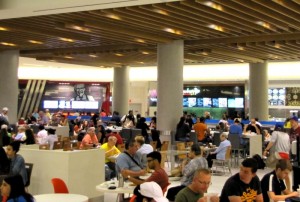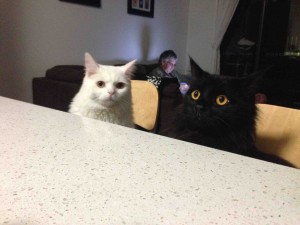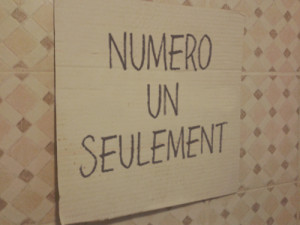Roberto Rocha blogs in the Montreal Gazette that the open data movement and the great apps that citizens create around it depends on government inaction. In essence, citizens are providing products and services that authorities, depending on your political view, probably should.
An example of this is RestoNet.ca, a child of Montreal’s open data knights.
Compare its straightforward, easy-to-use map with its data source, the City of Montreal’s website that lists restaurant hygiene infractions.
Granted, the city may not have the resources or the know-how to make all its services Web 2.0-compliant. And it’s a positive affirmation of community spirit that citizens are taking action,  voluntarily, to make tools that help other citizens. If anything, it’s a sign of a healthy society.
voluntarily, to make tools that help other citizens. If anything, it’s a sign of a healthy society.
Toronto’s DineSafe website makes public all restaurant inspection reports, and it’s updated daily. It also gives each establishment a color code: green for pass, yellow for conditional pass, and red for closed. This offers an easy-to-understand visual cue. Since it was implemented in 2001, the compliance rate among restauranteurs has jumped from less than 50% to 92%, according to program head Sylvano Thompson. That means fewer follow-up inspections and better use of resources.
Vancouver Coastal Health inspects restaurants and publishes the three most recent reports, though they don’t grade restaurants in any way. However, posting repeat inspection reports does offer an incentive for compliance.
Ottawa’s EatSafe database is much like Vancouver’s: it lists the results of past inspections, whether pass or fail, although it’s not as detailed.
Montreal only posts establishments that have been fined, and the latest reports are form October 2011, even though city spokespeople say it’s supposed to be refreshed monthly.
It’s the ministère de l’Agriculture, des Pêcheries et de l’Alimentation du Québec (MAPAQ) that makes the rules regarding restaurant inspections. The city doesn’t have the power to give hygiene grades or force restaurants to display inspections reports.
And the province has been resistant to change since it took over inspection duties in 2002. A March 15, 2004 article in The Gazette comparing Toronto to Montreal said:
Unless there’s significant public pressure, it’s unlikely the system will make its way to Quebec in the near future, said Daniel Tremblay, a food-inspection spokesperson for the Ministry of Agriculture, Fisheries and Food.
“There have been groups that have pushed for that in the past,” at parliamentary hearings into food inspection, Tremblay said, but at the moment, no change is expected.
Blame it on Quebec’s Secret Society.
 The team found no evidence of bacteria which could cause serious food-borne illnesses such as E.coli, salmonella or listeria.
The team found no evidence of bacteria which could cause serious food-borne illnesses such as E.coli, salmonella or listeria.


 voluntarily, to make tools that help other citizens. If anything, it’s a sign of a healthy society.
voluntarily, to make tools that help other citizens. If anything, it’s a sign of a healthy society.